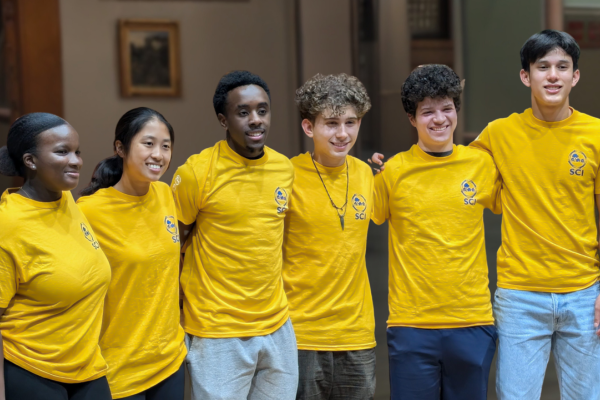Thriving, Inclusive Communities - The Work Ahead
At SCI, we are deeply passionate about cultivating authentic connections among ALL community members. Our work is all the more important as we move past election day in our deeply divided country.
Millions of words will be shared in the coming days analyzing the 2024 election and its aftermath. I want to focus on themes related to SCI’s mission, values and the work we plan to do in the coming years. We are getting ready for our first public presentation of SCI’s new strategic plan later this month, so will offer a bit of a sneak preview here.
SCI’s Core Values
One of SCI’s four core values is to “embrace our shared humanity”, which includes “listening to understand, and practicing allyship.” While our work seeks to connect and engage ALL community members in community life, we recognize many groups have unequal access to community resources and opportunities due to current and historical discrimination along with the persistence of structural racism. Whether it’s supporting an LGBTQ+ student group or recently arrived Haitian immigrants, SCI works to create thriving, inclusive communities.
The presidential campaign that is now ascendent featured daily rhetoric that attacked inclusive values. Leaning into our focus on inclusive communities and practicing allyship will be essential in the coming years.
Declining Trust & Social Disconnection
SCI is a nonpartisan organization that seeks to build bridges across differences. In the wake of the intensively divisive election, bridging across political divides is certainly very salient. Listening to understand comes into play here. Exit polling indicates that concerns about democracy and the economy are the top issues on people’s minds.
The vote clearly showed an anti-status quo element. While economic concerns are an important factor underlying the desire for change, significant distrust of institutions is also a factor. For instance, the U.S. is last among G7 nations when it comes to trust in national institutions, at 49%.
There may be some short term political gains achieved by divisive language and sowing mistrust in our institutions. However, as Retired Army Captain and Medal of Honor recipient Florent Groberg argues in this Atlantic article, we can’t remain so divided and address the many challenges we face. With low trust in national institutions, the bridge building work will need to start locally.
The divisive recent presidential campaigns have taken place during a time when relationships have frayed and diminished at a local level. The trend was underway before the pandemic and then exacerbated by the isolation that came along with it. In 2023, U.S. Surgeon General Vivek Murthy issued an advisory on “Our Epidemic of Loneliness and Isolation.” The report notes that young people were spending 70% less time in person with friends even before the pandemic began, and Americans of all ages were spending 24 more hours alone per month than they had in 2003.
Now, it is difficult to determine the extent to which the political climate is a driver of our social disconnection, or the other way around. I tend to think these factors are mutually reinforcing.
What does seem clear to me is that after this election, changing the direction of our civic life is going to need to start at the local level. Building relationships of trust that cut across differences will provide an important source of resilience. As Captain Groberg says, “This election is not an ending, but a beginning—a moment to choose a path of empathy, resilience, and respect.”
SCI’s New Strategic Plan
SCI has been building social capital in local Boston area communities for over 20 years now. But clearly, there is so much more to be done at this time. Thus, SCI’s new strategic plan has us significantly scaling up our impact by developing and supporting 1,000 Social Capital Cultivators™ by 2028. These emerging leaders will have the skills and motivation needed to bring people together in order to create thriving, inclusive communities.
Our new plan at SCI positions us to have a big impact in the coming years. I’m excited to do this important work. What really gives me hope is that SCI is doing this work as part of a movement of organizations and individual leaders that in many different ways are working to build bridges in local communities and nurture the long-term health of our democracy.
We held an event on November 20th at Goulston & Storrs at which we will be presenting more about our strategic plan. This Cultivating Connections event is also a great chance to connect with our community minded people in the SCI network. If you weren’t able to make the event, we will be sharing more about it here and via our email and social media. Feel free to reach out to me if you’d like to learn more about it!
Resources
Gandhi says “We ourselves must be the change we want to see in the world.” Here are some resources related to how you can help create change in your community and strengthen our democracy.
- Sam Pressler’s Connective Tissue for Regenerating Social Connection has a wide array of policy suggestions along with practical things you can do in your neighborhood. You can hear our conversation on this SCI podcast episode.
- AmeriCorps national service programs are increasingly focused on bridge building work. I talk with two leaders about national service and bridge building in Cultivating Connections episode 13.


